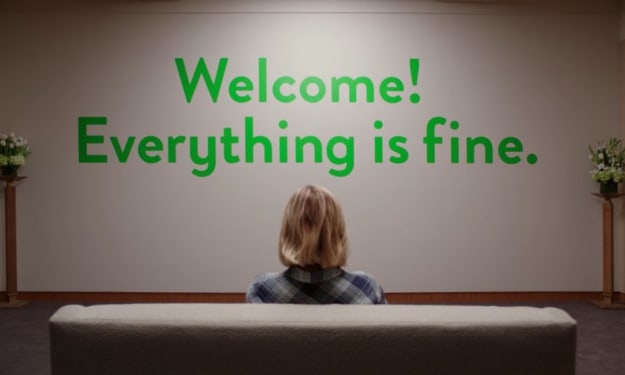Giving Up All-or-Nothing Thinking Changed My Life
My Annual Resolution to Quit Procrastinating
I used to have a joke that I repeated constantly whenever I was behind on a project. It’s pretty cheesy. Do you want to hear it?
I would flash a self-deprecating smile and say, “I put the pro in procrastination.”
It was a way of diffusing the tension I felt about not using the full extent of my abilities. I could’ve written a better paper. I could have worked harder on that project. I knew that my procrastination was a problem, but the solution seemed like a distant dream.
If I could stop procrastinating I would have already done it years ago, right?
It got to the point that I would no longer even make New Year’s resolutions because I knew I was doomed to give up after a few weeks. That may seem like a pitiful thing, but something strange started to happen. Once I had given up on creating such lofty goals for myself I started to get more and more things accomplished.
But hold on, isn’t that the opposite of what is supposed to happen? Not exactly.
What I didn’t realize at the time, was that I had fallen victim to a bad case of all-or-nothing thinking. Giving it up has changed my mindset so much that I wouldn’t have believed it just a few years ago. Now instead of creating unachievable goals every year for January 1st, I just renew my commitment to the same goal:
Getting rid of all-or-nothing thinking.
Here are three ways that this annual resolution has changed my life.
1. All-or-nothing thinking sets you up to fail.
Nobody can ever be completely perfect all the time. So, if the only two options for your goal are perfection or failure, you will always fall into the failure category. Once I realized this, it actually made me feel so much better.
What it means is that your failures aren’t because you aren’t capable or hard-working. Your failures are a product of poor goal-framing. That should make you very excited because goal setting is an easy thing to change.
When you are in the midst of this kind of thinking it can be hard to see your way out of it. That’s because all-or-nothing thinking is a positive feedback loop.
A positive feedback loop is when the outcome of a process creates more of that same process.
In the case of all-or-nothing thinking, the outcome of the process is a downward spiral. When you can’t be perfect at your unachievable goals you will fail and failure trains you to think that you will always fail.
The solution to this one is simple. Make more manageable goals. Seriously, it’s that easy.
When you make a resolution to do yoga for an hour every single day, it is easy to keep that resolution at the beginning, but eventually, you will come to a time when you are not able to measure up to that expectation. If you start with a goal that entails more positive change than your current state, but not so much that you will be overwhelmed, then success is much more likely. Once you start to succeed you will begin to break the downward spiral.
In my own life, I had to realize that sometimes half-assing something is better than not doing it at all.
2. Idealism matters less than action.
I have always been guilty of nurturing really elaborate daydreams about a goal without actually doing anything to achieve that goal. I would start with high excitement and lots of plans, and somehow when the time came to work, I couldn’t find the energy.
All-or-nothing thinking drives you to fixate on particular outcomes, but success comes from the actual work.
The best way to help yourself succeed is to focus on doing and not thinking about doing. What I realized is that the constant thoughts and worry about the desired outcome can drain your energy, until you have nothing left for when it really matters.
The way I combat this is to write down my goal (the outcome that I want) then write down the steps I need to take to achieve that goal. Assuming that the goal is actually achievable (see my first point) then after I have my steps I try to forget about my goal. The steps should be small enough that each one feels doable. If your steps aren’t doable then you simply won’t do them.
Something that I realized when I started doing this, was that not all my goals were things that I actually wanted. I may have been fixated on a particular imaginary outcome, but when I faced reality, it hit me that I actually didn’t want to spend my time doing that.
When you get rid of all-or-nothing thinking, you will begin to improve your life in meaningful ways that are based on how you actually want to spend your time and not wild fantasies with no action behind them. This isn’t something to be disappointed about, because as it turns out, reality can be awesome.
Once you start to get clear on what you actually want from your life, a whole world of new experiences opens up.
3. When you give up all-or-nothing thinking you will actually get stuff done.
I have come to believe that the majority of procrastination stems from fear of failure. When I first started to root out this type of thinking in my life, I was mostly focused on winning small victories. I started going on 20-minute walks and adding more vegetables to my diet, without huge expectations. When these small steps started paying off it was cause for celebration.
That taste of success was an important first step, but it didn’t end there. I started to realize that failure wasn’t all bad. I was setting smaller goals so the stakes were not as high. That means that when I failed at something it wasn’t the end of the world. In fact, there weren’t any huge negative consequences for failure, so it didn’t even bother me that much. If I failed, I could always just try again tomorrow. That became my motto.
It became okay to fail.
That was where the real metamorphosis began. I started trying more and more things, knowing that if I failed it wasn’t the end of the world. I started to set larger goals for myself (still within reason) knowing that even if I didn’t complete them, I would still be better off than I was before.
That is why I come back to this resolution every year. I will never have the absolute perfect mindset, but every year is a chance to try and maybe even fail, knowing that it will be worth it in the end.







Comments
There are no comments for this story
Be the first to respond and start the conversation.